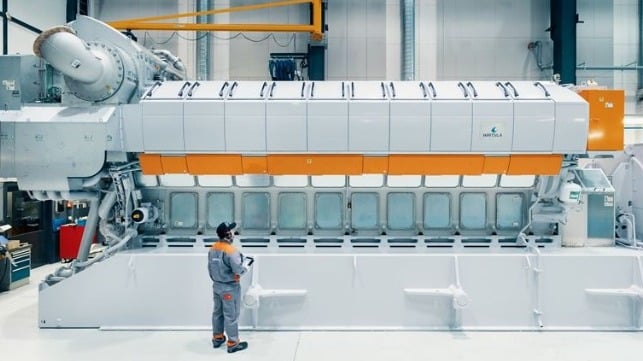Wärtsilä Predicts an Essential Role for Onboard Carbon Capture

Technology company Wärtsilä, the leading manufacturer of exhaust gas scrubbers, says that it sees strong potential for onboard carbon capture and storage (CCS) as a means of reducing CO2 emissions from shipping.
Wärtsilä says that it has conducted an extensive R&D effort to explore how CCS can be developed and scaled in maritime applications, and its initial findings suggest that CCS on ships is technically viable. Wärtsilä is installing a one-megawatt pilot plant at its test facility in Moss, Norway, to test its CCS technologies.
According to Wärtsilä, CCS will have to have a central role in the drive towards decarbonization. To date, there is no single technological solution for the entire industry, and CCS could be particularly useful for reducing the emissions of existing ships.
“Building on the success of existing and well-proven technologies, such as scrubbers, will be vital to succeeding on the industry’s decarbonization goals,” said Sigurd Jenssen, Director of Exhaust Treatment at Wärtsilä. “Exhaust gas abatement technologies have reached a point of maturity where it is only right that we explore their wider applications beyond sulphur compliance.”

that matters most
Get the latest maritime news delivered to your inbox daily.
Like all low-carbon power options, CCS comes with its own technical challenges, including the question of finding onboard storage for the captured carbon. Every tonne of bunker fuel burned results in roughly three tonnes of CO2, and this requires new allowances for volume and weight if the CO2 is to be stored rather than emitted.
“CCS onboard vessels is clearly a substantial undertaking, but one that we believe we are well placed to pioneer. Carbon capture is exciting because it can provide significant reductions in a relatively short timeframe. This is important in the context of the industry’s overall decarbonization transition, as it will enable us to safeguard existing assets as we move to a cleaner mode of operating," said Jenssen.
